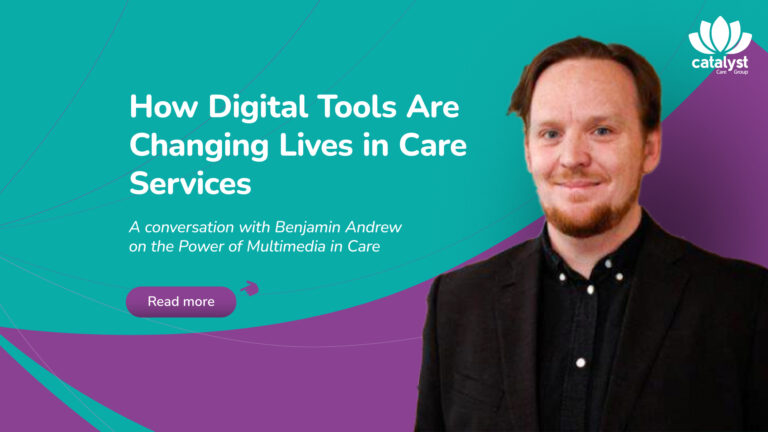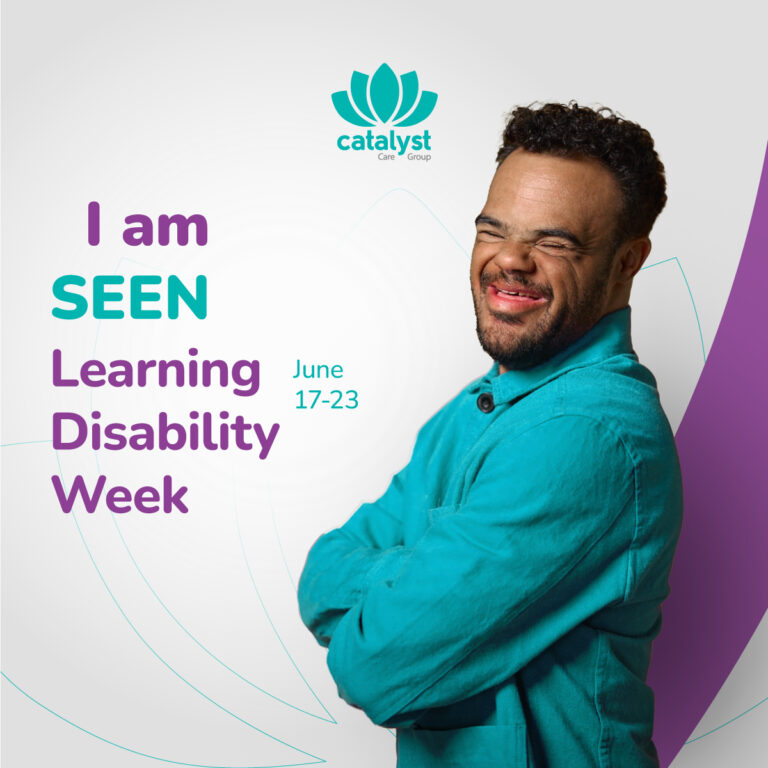How is health and social care changing? Can the system meet the rising demand for community services?
According to recent statistics, there are currently 2,035 autistic people and people living with a learning disability detained in inpatient mental health facilities across England. This figure includes a significant number of children and adolescents, with 210 under 18 years old. Additionally, a striking 93% of these young people are autistic.
These statistics underscore the critical need for more holistic, community-based support systems. In fact, NHS data suggests that 635 of the 2,250 people currently detained could be transitioned to community-based care, offering a more supportive and less restrictive environment and alleviating some of the pressures on inpatient facilities.
The data emphasises the ongoing challenges in providing the right mental health support. It also highlights the importance of developing community services for autistic people and people living with a learning disability and mental health needs.
Commissioning Challenges Based on Our Last White Paper Publication
To better understand the current state of care in England, we collected insights from commissioners regarding the challenges and gaps between inpatient and community services.
We explored the main difficulties commissioners encounter in fulfilling their responsibilities. The responses provided a thorough overview of the current state of the UK health and social care system.
Through comprehensive data collection and analysis, we have identified key areas where improvements are urgently needed. Our findings underscore the critical issues facing providers and people receiving care, highlighting systemic deficiencies impacting service delivery and positive outcomes.
Based on the response in our White Paper publication, we identified:
- 80% of commissioners reported a lack of funding as the main challenge
- 40% of commissioners reported a lack of accommodation and community capacity for people
- 30% of commissioners clicked ‘select all’ as an option when we listed the challenges
Commissioners face the challenge of transitioning people who have spent extended periods in inpatient settings back into the community and subsequently closing the hospital beds they occupied. This includes people who have resided in hospitals for many years, some since the closure of NHS campuses or long-stay facilities. For people experiencing these challenges, hospitals have effectively become permanent residences, necessitating efforts to find more suitable homes in the community with holistic care and support.
Despite the significant progress over the past decades, we can conclude that the system is still fragmented, and current health and social care services still lack resources for developing community services.
Building the Right Support for People
The national program, Building the Right Support, was created to develop community services and close inpatient facilities for autistic people, people living with a learning disability and mental health needs. This plan outlines detailed steps, including supporting local leadership and providing new investments to encourage meaningful change. This presents a significant opportunity—to uphold the rights of autistic people and people living with a learning disability to improve the lives of thousands of families.
In recent years, many people have been assisted in transitioning from hospitals to community care. However, many people continue to be admitted, often to unsuitable care environments, resulting in a consistent number of admissions.
This requires better progress in altering core aspects of care, and support needs to be increased.
To ensure lasting change, we must cultivate a cultural shift, empower people, and transform our service approach. It’s crucial to view autistic people and people living with a learning disability as citizens entitled to rights, leading active lives in their communities and residing in their own homes, just like any other citizen. This requires developing appropriate community-based services that enable people to live independently, ultimately minimizing unnecessary inpatient care.

The Care System We Need
Autistic people and people living with a learning disability deserve equal opportunities to live fulfilling and meaningful lives with dignity and respect. Like anyone else, they should be able to live in their own homes, foster positive relationships, and receive the necessary support for their health, safety, and active social engagement.
The National Service Model, which was developed with the help of autistic people, people living with a learning disability, families, carers, and a group of independent experts, sets out how services should support autistic people and people living with a learning disability who display behaviour that challenges.
The National Service Model outlines that:
- People should be supported to have a good and meaningful everyday life through access to activities and services.
- Care and support should be person-centred, planned, proactive, and coordinated.
- People should have choice and control over how their health and care needs are met.
- People living with a learning disability and autistic people should be supported to live in the community with appropriate support.
- People should choose where and with whom they live.
- People should receive good care and support from mainstream NHS services, following NICE guidelines.
- People living with a learning disability and autistic people should be able to access specialist health and social care support in the community.
- When necessary, people should get support designed to help them avoid legal or social difficulties.
- When necessary, people should be able to access high-quality assessment and treatment in a hospital setting.
Reduced Need for Hospital Admissions
With the appropriate community services established, the demand for inpatient care will greatly decrease, and commissioners will have a more effective resource allocation system. When building the right community services and giving people the power to decide the care and support services they use, the need for hospital admissions will be significantly reduced.
With a person-centred and proactive approach, people will have an equal chance of improving their quality of life, with an equal right to education, employment and community inclusion.
Case Study- The Right Support Changes Lives
This case study highlights the gap between community and inpatient services, as well as the negative impact of hospital detention on people’s identity and physical and mental well-being.
Lisa is a woman who spent nearly thirty years in institutional care, separated from her community. Throughout this period, she experienced mental health challenges and faced significant difficulties in self-care, having little control over her life, decisions, and future. Although she received care, the institutional setting separated her from everyday experiences and personal freedom, affecting her fundamental human rights.
The primary challenge was transitioning Lisa from the hospital to the community. Empowering her to make personal choices and feel secure required a comprehensive approach to ensure her safety, build confidence, and foster independence in a supportive environment.
“The first time that I met Lisa was in the hospital. I noticed immediately how kind and caring she was, always concerned about others’ well-being. However, she lacked self-care. We wanted to change that, encouraging her to start thinking about herself.”
– Bethany Kendall, Senior Care Co-Ordinator
Our internal multidisciplinary team (MDT) took a holistic, person-centred approach to support Lisa’s transition from hospital to home. The process started with a commitment to understanding her unique personality, needs, and strengths.
Click here to learn more about our Community Transition Services
Amy Butler, a Positive Behaviour Support (PBS) Specialist, led a team of Community Psychiatric Nurses, Registered Managers, and a multidisciplinary team of Occupational Therapists, Speech and Language Therapists, and Multimedia Specialists. Together, they assessed Lisa’s needs and developed a comprehensive and personalised care plan.
With the right support, Lisa now enjoys greater independence and actively makes her own choices in the community. Her well-being has greatly improved, leading to a richer quality of life and a deeper sense of personal fulfilment.
Watch the full story:
Catalyst Care Group is committed to providing community care and holistic support. If you need urgent care, long-term support or community transition support, we are here for you!













